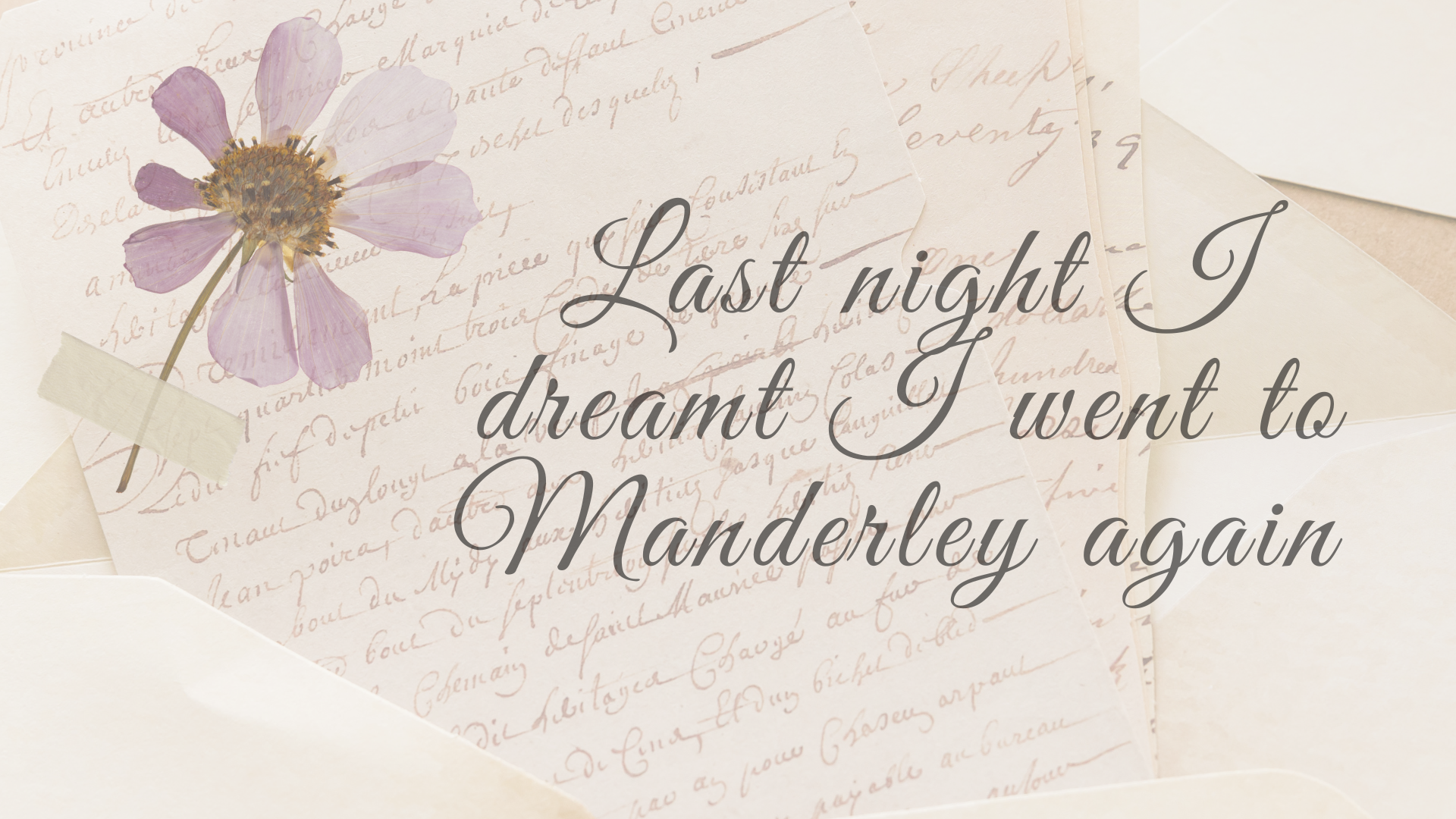Beginnings make me excited, and I’m sure I’m not the only one for whom this holds true. First days of the new year, picking up a new task at work, and, to get to the point, beginning a book to which I’ve been looking forward. As a newcomer to a book, you pretty much fly over the first paragraphs, not to mention the very first sentence. You want to get to the stuff of the story. But as a re-reader, you drink deeply from that very first sentence. Mrs. Dalloway said she would buy the flowers herself. Stately, plump, Buck Mulligan came from the stairhead, bearing a bowl of lather on which a mirror and a razor lay crossed. Virginia Woolf in Mrs Dalloway and James Joyce in Ulysses wrote probably some of the most famous first sentences in 20th century English literature. But we’re not talking about the most famous first sentences today. Today we’re talking about killer first sentences in 20th century women’s writing. In more than one way.
the week after was one the busiest weeks of their lives.
Katherine Mansfield made her signature style out of throwing her reader in the middle of the story, a technique more fancily called in medias res. The Australian writer was only 34 when she died, but she is recognized as one of the finest short-story writers and one of the main figures of Modernism. She published four collections of short stories during her lifetime, and she also wrote poetry and book reviews. In her review of Virginia Woolf’s 1915 novel The Voyage Out, Mansfield was particularly unforgiving towards Woolf, friend and fellow Modernist. Mansfield accuses Woolf of being ignorant of the Great War, which, in 1915, was raging in Europe.
The sentence above opens ‘The Daughters of the Late Colonel’, published in 1922, in Mansfield’s third collection of short stories, The Garden Party and Other Stories. Josephine and Constantia are two sisters, who are left to live alone after the death of their elderly father. The story starts “the week after”, but we don’t realize what the “after” is about only after some paragraphs and only by picking up hints from the conversation of the sisters. The fact that we are thrown directly into the private lives of the two sisters, without much description and explanation, makes them feel real to us. In a more intimate way than if we learned in what kind of house they lived and what they had for breakfast. As a reader, you feel like you’re part of their lives. Katherine Mansfield’s style of writing the lives of her characters is a cornerstone of Modernism, which prized authenticity and life-likeliness above the heaviness and stuffiness of Victorian literature.
last night I dreamt I went to manderley again.
This is how Rebecca starts, the fifth novel of Daphne du Maurier, British writer of novels, short stories and plays. In du Maurier’s works, suspense, supernatural and character psychology go hand in hand, and the reader is never certain where, if any, borders are drawn. Rebecca, the author’s 1938 novel, is no exception. The story is told in the first person by a young, inexperienced girl without a name or family. Until Maxim de Winter takes her as his wife, I don’t even know how to refer to her – she, the heroine, the narrator, the companion. Then it becomes easier because the unnamed heroine becomes Mrs. de Winter. Mrs. de Winter is the passive element in her own story, and from the beginning, we realize that her life starts as she meets Maxim and becomes the mistress of Manderley, the property owned by the de Winter family. But Mrs. de Winter has no easy life in her new home. The shadow of Rebecca, Maxim’s former wife who died in a sea accident a year before, still lives at Manderley.
I must have read the novel about three or four times by now and that first sentence always hits me in the most pleasant way. Manderley is the dream house for Mrs de Winter and for me, as a reader, it is the quintessential English idyllic country house. The estate is located on the coast, amidst lush gardens and woodlands, with a breathtaking view of the sea. It has been passed down through generations of the de Winter family, and the traditions and expectations associated with it weigh heavily on Mrs de Winter. Manderley is a place of memory, haunting, death, and revival and is a point on the map of the English tradition of country house novels, alongside Wuthering Heights, Thornfield Hall or Bly Manor.
my name is mary katherine blackwood. I am eighteen years old and I live with my sister constance. everyone else in my family is dead.
Merricat and Constance Blackwood belong to Blackwood Manor of We Have Always Lived in the Castle, Shirley Jackson’s 1962 novel, just as Rebecca belongs to Manderley. I admit, I have cheated a bit with this novel, because I am quoting here not just the very first sentence, but three sentences of the first paragraph. This really helps impress on newcomers to the novel the fact of how strange Mary Katherine, Merricat, is. While any other teenager of literature will introduce themselves by some interesting facts about themselves, Merricat doesn’t need to tell us anything extraordinary about herself. Her first introductory couple of sentences are more than enough for us to get a glimpse of how she’s like. Who else will start with their name, their age and their family?
These basic facts Merricat shares about herself immediately make us think about home and family. Or, as Shirley Jackson’s favourite theme is, domesticity. In her six novels and more than 200 short stories, she focuses mostly on women’s lives in villages and cities and how wrong we, as readers, are to believe that home and family are places of safety. Merricat and her sister Constance live in isolation in their large manor after their family dies of arsenic poisoning during a dinner. Because Constance was the cook, the townspeople believe that she poisoned the family, and both surviving sisters face the hostility and prejudice of their neighbours. The story is told from Merricat’s perspective, in a playful, if slightly stilted, tone. Merricat will turn out to be darker than your standard outsider teenager, but this does nothing to make her less sympathetic.
now that they are out of world affairs and back where they started, peter frazier’s wife says, “everybody else did well in the international thing except us”.
Of all four authors featured in this post, Mavis Gallant comes probably the closest to Katherine Mansfield. They are both exquisite short-story writers and they are both read less than they deserve to. Like Mansfield, Gallant also likes to throw her readers in the middle of the story, but the way she does it is more buried in detail and passage of time than the way Mansfield does it. A good example is ‘The Ice Wagon Going Down the Street’, a short story which was published in the New Yorker in 1963 and collected in Home Truths in 1981. I wrote more about Mavis Gallant’s work here and, as of now, she is one of my absolute favourite authors.
‘The Ice Wagon’ is probably one of Gallant’s most widely read stories and quite specific of her style. Her characters are mostly dislocated people, and so are Peter and Sheilah Frazier, a married couple who, because of Peter’s work, has been moving to different cities across the globe. One would think that their international experience has made them appreciate different cultures, people and places, but nothing could be further from the truth. This is made very clear in that first sentence. They are “back where they started”. It’s like they’ve been through nothing. That first sentence is so intricate, it builds layers of time above and under the present moment. There is a “now”, but there is also past, regret and contempt built in there. The story focuses on Peter and Sheilah’s time in Geneva, where they meet Agnes Brusen, a work colleague of Peter’s. Her name is a memory now, spoken among “hundreds of other names”, but could have also been something more.
convinced?
This is not how any great 20th century book starts, as far as I know. But I would like to know if any of these 4 first sentences makes you wanna go and get the book it was extracted from, or makes you rethink the books, if you know them. Or do *you* have a killer first sentence of 20th century women’s writing for me?









your thoughts?